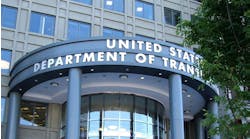As Americans head out on the roadways for some much needed rest and relaxation over the Independence Day holiday, they should do so with heightened awareness, as statistically it’s the most dangerous weekend to drive.
Over the four-day period, the U.S. suffers 450 fatal crashes on its roads, or 112 per day, a study of 2016-2018 data by AutoInsurance.org found. During that same period, the U.S. recorded 103,227 fatal crashes in total, for an average of 94 per day. That means the Fourth of July weekend over that period saw an almost 20% increase. The data came from the Federal Highway Administration (FHWA), U.S. Energy Information Administration (EIA), Fatality Analysis Reporting System (FARS), and National Highway Traffic Safety Administration (NHTSA).
AutoInsurance.org attributed drivers and passengers having a 20% higher chance of dying on a day this weekend over a “normal day" to drunk driving. The study found 40% of the dead drivers were intoxicated versus 32% normally. And 70% had a blood alcohol concentration (BAC) of 0.015 or more; the legal limit is 0.08 BAC.
The next two deadliest periods, Memorial Day and Labor Day weekends, also have more alcohol-related fatalities, the study indicated.
AutoInsurance.org noted more law enforcement has been deployed to mitigate the dangers.
"The allocation of resources towards education and enforcement is justified and can be helpful in deterring people from acting recklessly. For instance, in Memphis, Tennessee, there were police officers stationed every couple of miles along the highway, which we hope would make someone think twice about drinking and driving," Chris Tepedino, lead author of AutoInsurance.org report, told FleetOwner.
A few things may make this year even more dangerous. First off, it stands to reason that because the country has now finally reopened, there will be a lot of people likely making up for lost partying time after the lockdowns.
"COVID quarantines also caused reckless driving with increases in alcohol consumption and reckless behavior when areas opened back up," Tepedino said. "We predict an increase in traffic deaths overall this post-COVID year, meaning more traffic safety concerns on U.S. roads—especially during holiday weekends. We feel education and enforcement are even more important this year than in previous years."
Recent statistics lend credence to Tepidino's prediction, as road safety appears to be trending in the wrong direction. Last year, annual road fatalities (not to be confused with fatal crashes) shot up to 42,060, or 115 total deaths per day, according to the National Safety Council (NSC). What made this nearly 8% rise over 2019 so shocking was that total miles traveled decreased by 13% due to COVID-19 restrictions. That could be dismissed as a fluke year due to the pandemic and all the existential stress it caused.
An NHTSA study from October 2020 listed the following risker behaviors that increased:
- Speeding
- Failing to wear seat belts
- Driving under the influence of alcohol or other drugs
These dangerous practices seemed to have a tangible impact on fatalities. The NHTSA counted 38,680 road fatalities in 2020, for a 106/per day average. This was up 7.2% from 2019. According to 2016-2018 NHTSA records, about 101 people died in vehicle-related accidents per day on average (amounting to 37,114 per year).
The reason the groups’ data differ is because the NSC accounts for total deaths stemming from these accidents (using National Center for Health Statistics data), while the FARS database includes only those deaths in the 30 days following the crash.
Though the totals slightly differ, the historical trends nearly mirror each other.
A previous study conducted by the law firm Paulson Coletti revealed that from 2013 to 2017, Independence Day weekend saw 101 deaths per day, caused by an average 96 fatal crashes per day. That study also found 40% of the deaths involved at least one drunk driver.
To be on the safe side, commercial drivers should mentally prepare to act more defensively and be on the lookout for erratic behavior, especially between 9 p.m. and midnight, as that is when the highest amount of fatalities occur. These drivers should also be extra vigilant when conducting tire and brake inspections to ensure optimal stopping performance in case of accidents, while also enabling any advanced driver assistance systems (ADAS) for an extra level of protection.





